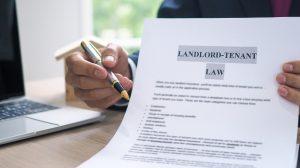Being a landlord can be rewarding, but it also comes with its own set of challenges. Whether you’re a seasoned pro or just starting, implementing effective strategies can help you manage your properties more efficiently and foster positive relationships with your tenants.
From tenant screening tips to landlord insurance advice, here are some top tips for landlords to enhance their rental experience.
Top Strategies and Tips for Landlords to Successfully Manage Their Properties
Understand the Legal Landscape

Before diving into property management, it’s essential to familiarise yourself with local landlord-tenant laws. Each state and municipality may have different regulations regarding leases, security deposits, eviction processes, and tenant rights.
Staying informed about these laws will help you avoid legal pitfalls and ensure you’re operating within the legal framework. Consider consulting with a legal professional or attending workshops to stay updated.
Invest in Landlord Insurance
Landlord insurance is a crucial aspect of property management that protects landlords from potential financial losses associated with renting out their properties. Unlike standard homeowner’s insurance, landlord insurance typically covers risks specific to rental properties, such as loss of rental income due to tenant-related issues, property damage from natural disasters, vandalism, or tenant accidents.
CIA Landlords provides affordable landlord insurance, compared with nine leading insurers to ensure you get the best price possible.
Screen Tenants Thoroughly
Finding the right tenants is crucial for the success of your rental property. Implement a comprehensive tenant screening process that includes credit checks, background checks, and rental history verification.
An effective screening process helps you identify reliable tenants who are more likely to pay rent on time and take care of your property. Remember to comply with fair housing laws during the screening process to ensure you’re treating all applicants fairly.
Maintain Open Communication

Establishing and maintaining open lines of communication with your tenants can foster a positive rental experience. Encourage tenants to voice their concerns or report maintenance issues promptly. Being approachable and responsive can help build trust and can lead to longer tenancy.
Consider using tools like property management apps or dedicated email addresses for tenant communication to streamline the process.
Invest in Preventive Maintenance
Preventive maintenance can save you time and money in the long run. Regular inspections and routine upkeep of your property can prevent minor issues from escalating into costly repairs.
Schedule seasonal maintenance checks for HVAC systems, plumbing, and appliances. Keeping your property in good condition not only enhances tenant satisfaction but also protects your investment.
Set Competitive Rental Prices
Determining the right rental price is crucial for attracting tenants while ensuring profitability. Conduct thorough market research to analyse rental prices for similar properties in your area.
Setting a competitive price can reduce vacancy rates and lead to quicker leasing. If you’re struggling to attract tenants, consider offering incentives such as a discounted first month’s rent or flexible lease terms.
Create a Welcoming Environment
First impressions matter, especially when it comes to potential tenants. Ensure your property is clean, well-maintained, and inviting. Consider making small upgrades, such as fresh paint, landscaping, or modern appliances, to enhance the property’s appeal.
A welcoming environment can help you attract quality tenants and encourage them to stay longer.
Document Everything

Keeping thorough records is essential for managing your rental property effectively. Document all communications with tenants, maintenance requests, and financial transactions. This documentation can be invaluable in case of disputes or legal issues.
Consider using property management software to streamline record-keeping and ensure you have easy access to important information.
Be Proactive About Rent Collection
Establishing a clear rent collection process can help you avoid late payments and tenant disputes. Set clear due dates and consider implementing automated payment options for convenience.
Communicate your policies regarding late fees upfront and follow through consistently. Address any payment issues promptly and professionally to maintain a positive landlord-tenant relationship.
Stay Engaged with the Community
Being an active member of your local community can benefit your rental business. Attend neighbourhood meetings, participate in local events, and network with other landlords.
Building relationships with local businesses and organisations can lead to referrals and foster a sense of community, making your property more appealing to prospective tenants.
Final Thoughts
Managing rental properties successfully requires a combination of knowledge, organisation, and effective communication. By understanding the legal landscape, screening tenants thoroughly, maintaining open communication, and investing in preventive maintenance, you can enhance your experience as a landlord.
Remember, the goal is not just to fill vacancies but to create a positive living environment for your tenants. With these tips, you’ll be well on your way to achieving success in the rental market.









Leave feedback about this